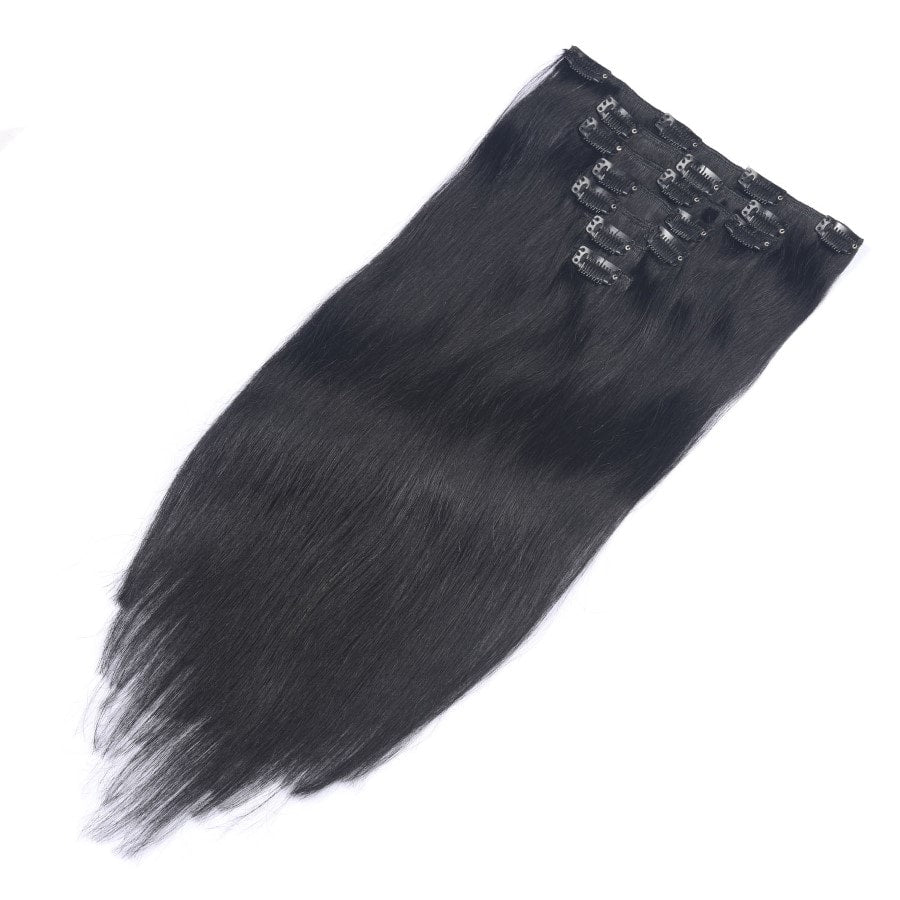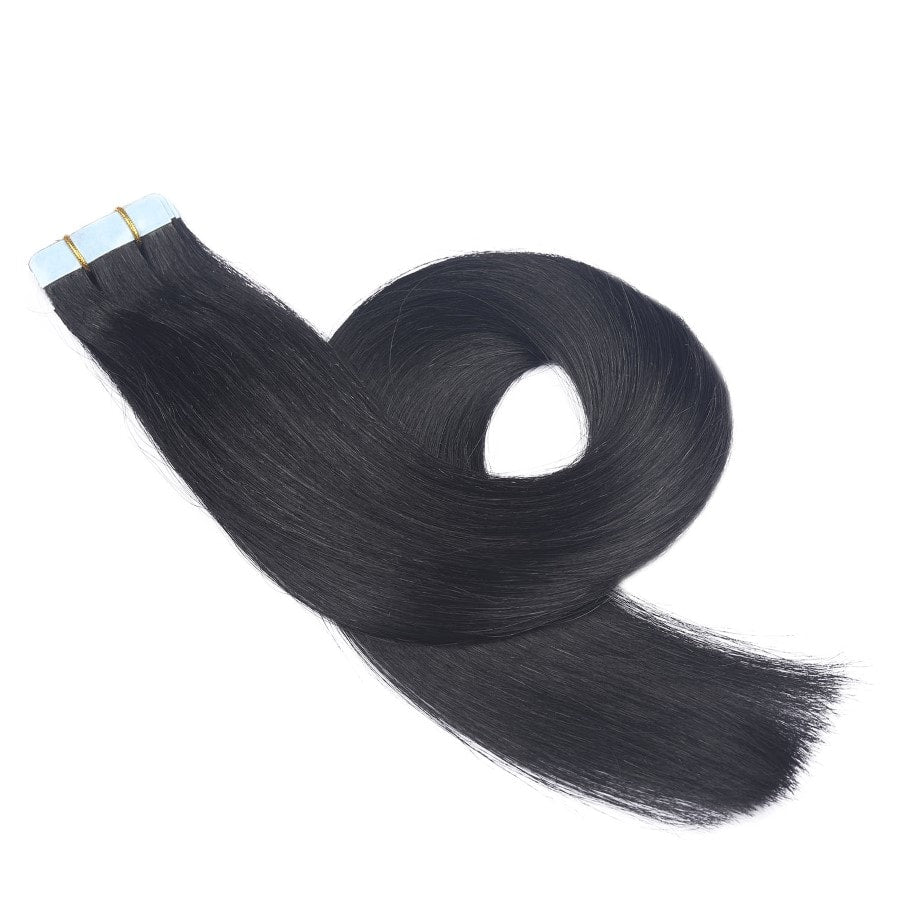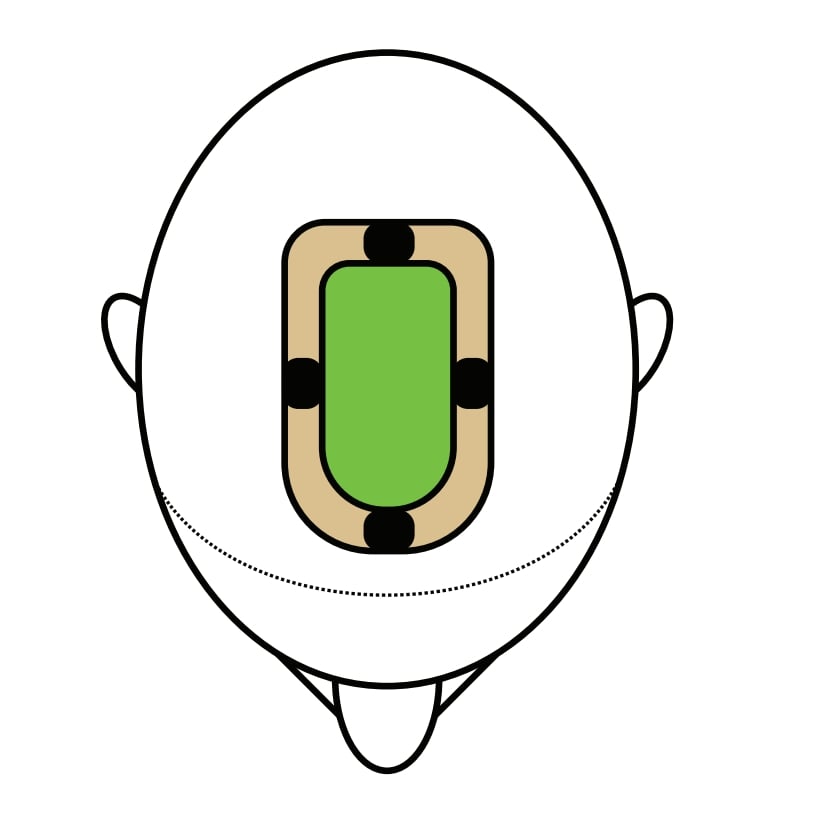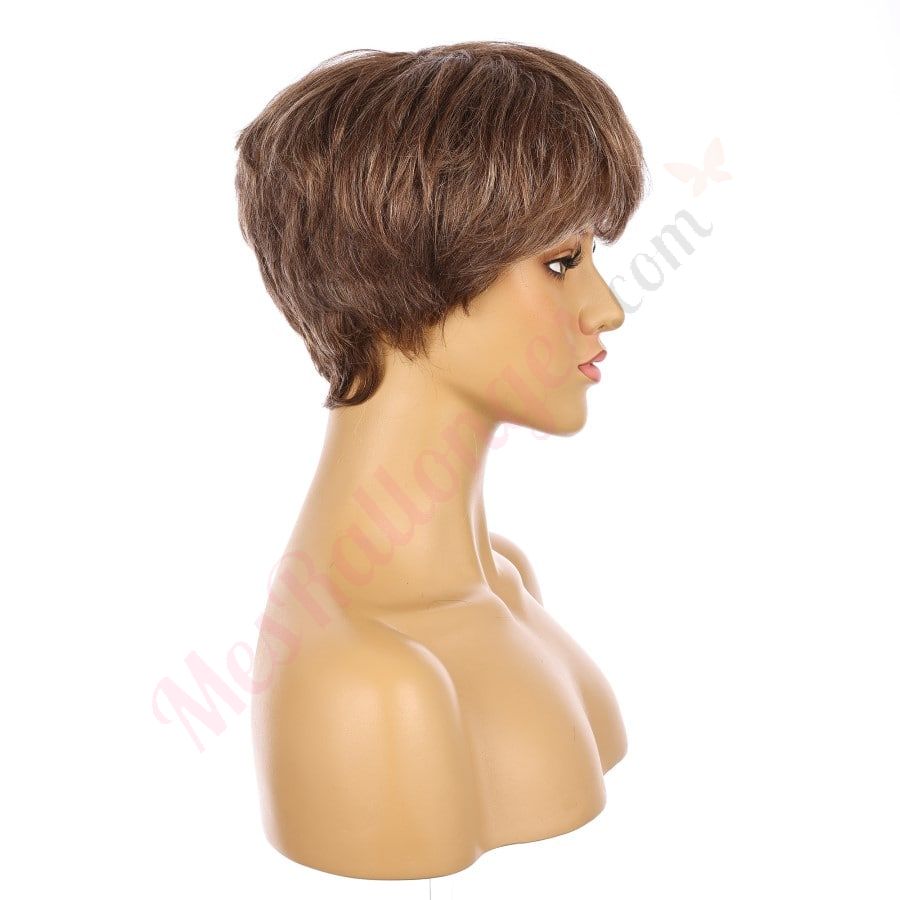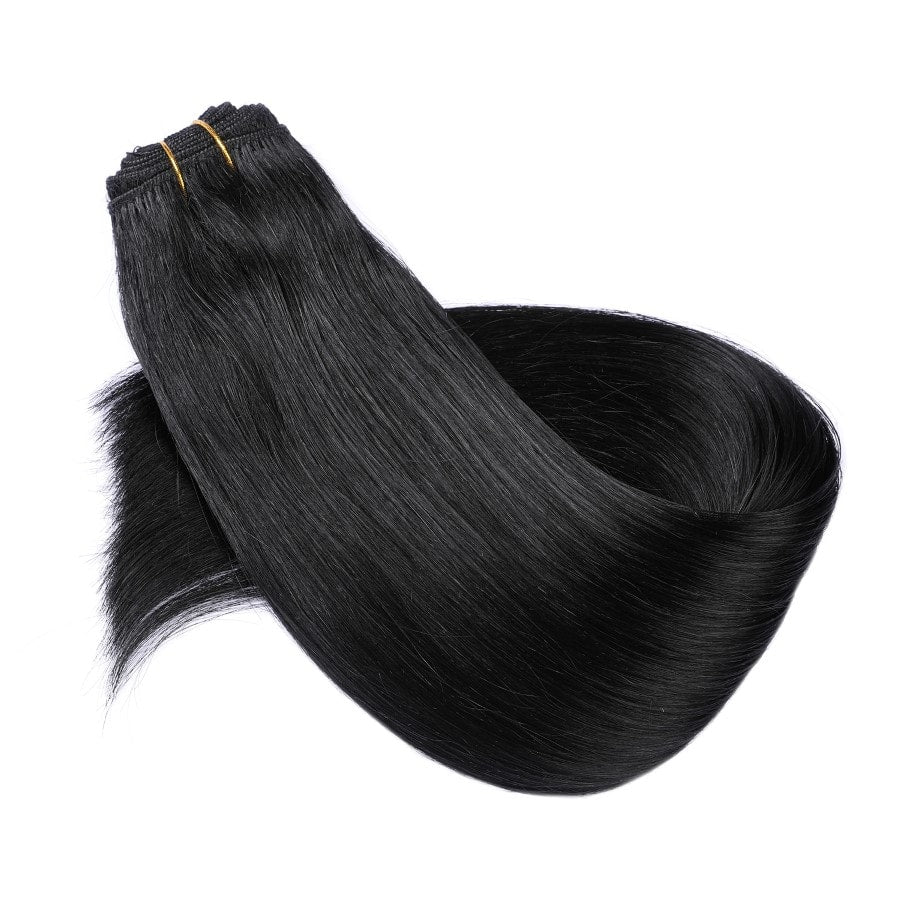Many people love hair extensions for the volume and length they add to their hair. Yet, a common problem arises: itching. Itchiness from hair extensions is usually due to poor fitting or inadequate scalp care.
Another reason could be an adjustment period. When extensions are newly fitted, they might rub against the scalp, causing irritation. Using products that strip natural oils or skipping proper hair care can worsen the itch.
Addressing this itchiness involves choosing high-quality extensions and taking good care of both the extensions and your scalp. Avoiding harsh chemicals and regular brushing are key practices for maintaining comfort and health.
Key Takeaways
- Poor fitting or scalp care can cause itching.
- New extensions might cause irritation.
- Proper care and quality extensions help maintain comfort.
Understanding Itchy Scalp from Hair Extensions
Itchy scalp from hair extensions can be caused by several common factors. These include issues with the extensions themselves, scalp sensitivity, and potential allergic reactions or infections.
Common Causes of Scalp Discomfort
Many factors can lead to an itchy scalp when using hair extensions. One main cause is improper aftercare routines. Neglecting to brush the hair can lead to poor blood circulation in the scalp and a buildup of natural oils, resulting in discomfort.
Other causes can include dry scalp, dandruff, and product buildup. Using the wrong hair care products can irritate the scalp, making it itchy and uncomfortable.
Hair Extension Types and Scalp Sensitivity
Different types of hair extensions can affect scalp sensitivity. Extensions made from synthetic materials or those applied with strong adhesives can sometimes irritate the scalp more than natural hair extensions.
Some people may have naturally sensitive scalps that react negatively to tight attachments or heavy extensions. This can cause inflammation and an itchy, tingling sensation.
Recognizing Allergic Reactions and Skin Infections
It's essential to recognize the signs of allergic reactions and skin infections caused by hair extensions. Allergic reactions might include redness, swelling, and severe itching around the extension points.
Infections can occur if extensions are not properly cleaned. Symptoms can include flaking, redness, and soreness. Bacteria can thrive in dirty extensions, leading to more severe scalp issues.
By understanding these causes and taking proper care of hair extensions, individuals can reduce itchiness and maintain a healthy scalp.
Proper Hair Extension Selection and Fitting
Selecting the right hair extensions and ensuring they are fitted correctly is crucial to avoid itchiness and discomfort. Key aspects to consider include choosing the ideal extension method, proper application, and fitting the extensions' weight and size accurately.
Choosing the Right Hair Extension Method
Different methods of hair extensions can impact how they feel on the scalp. Popular types include clip-ins, tape-ins, micro bead hair extensions, fusion, and hand-tied extensions.
Clip-ins are easy to apply and remove, making them less likely to cause irritation. Tape-ins and hand-tied extensions are also gentle on the scalp because they spread the weight of the extensions evenly. Fusion and micro bead hair extensions might exert more pressure, so consider how sensitive your scalp is before choosing these options.
Ensuring Correct Application and Attachment
How extensions are attached plays a significant role in comfort. Improper attachment can lead to tension and itchiness. Keratin bonds or fusion extensions must be applied carefully to avoid placing too much pressure on the scalp.
A professional stylist should handle methods like micro bead hair extensions and tape-ins to ensure they are fitted correctly. For clip-ins, make sure they are not placed too close to the scalp and are not pulling on the natural hair, as this can cause irritation.
Assessing the Weight and Fit of Extensions
The weight of hair extensions should suit your natural hair's capacity to support them. Extensions that are too heavy can strain your natural hair and scalp, causing discomfort.
When assessing the weight, consider the density and length of the natural hair extensions. Extensions should blend seamlessly with your natural hair without causing extra pressure. If extensions feel heavy or tug at your scalp, it's a sign they may need adjustment or a different method altogether.
Ensuring that extensions are fitted correctly and not too tight is essential. Tight extensions can cause itchiness and even damage your hair. Regular maintenance and checks with a stylist can help ensure the extensions remain comfortable and securely fitted.
Hair Extension Maintenance and Hygiene
Taking care of hair extensions is crucial to prevent itching and maintain healthy scalp conditions. Ensuring proper cleansing routines, selecting suitable products, and addressing buildup are key factors in prolonging the lifespan of the extensions and minimizing discomfort.
Effective Cleansing Routines
Washing hair extensions regularly helps prevent buildup and keeps the scalp clean. It's important to use a gentle shampoo to avoid stripping the natural oils. Extensions should be shampooed at least once a week, but frequency depends on personal needs and how oily the scalp gets.
A lightweight conditioner should be applied from mid-length to the ends. Avoid applying conditioner near the bonds or beads of extensions, as this can weaken their hold. Rinse thoroughly to ensure no product is left to cause residue.
Choosing the Right Products for Your Extensions and Scalp
Selecting the right products is essential. Gentle shampoos or sulfate-free shampoos are ideal for preventing dryness and maintaining the extensions' integrity. For those with dandruff, an anti-dandruff shampoo can help, but it should be used sparingly.
A clarifying shampoo can be used once a month to deep clean and remove any buildup. Dry shampoos can also be helpful between washes to absorb excess oils without overly washing the hair. It's recommended to avoid products with heavy oils or alcohol, as they can weigh down or damage the extensions.
Addressing Buildup and Residue Challenges
Buildup from hair products or natural sebum can lead to itching. To reduce this, a clarifying shampoo can be a game-changer, used occasionally for a deep clean. Proper rinsing during each wash ensures no products remain in the hair or on the scalp.
It's also advisable to gently brush the hair extensions daily. This helps distribute natural oils from the scalp, reducing dryness and itchy sensations. Using a brush with soft bristles or a wide-tooth comb can minimize the tugging on extensions.
By focusing on these maintenance and hygiene strategies, one can enjoy comfortable and long-lasting hair extensions.
Managing External Factors That Cause Itchiness
Taking care of hair extensions involves addressing both lifestyle choices and external elements that can contribute to itchiness. Implementing a proper aftercare routine and managing sweat and stress are essential.
Lifestyle Considerations and Aftercare Routine
Proper aftercare is key to maintaining healthy hair and preventing itchiness from extensions. Brushing the hair regularly helps to distribute natural oils, reducing tension and dryness on the scalp.
Using the right products can minimize scalp sensitivity. Opt for gentle shampoos and conditioners designed for extensions. It's important to keep the scalp clean without over-washing, which can strip natural oils.
Ensuring the extensions stay tangle-free is crucial. Regularly detangling them helps prevent buildup that can irritate the scalp. Also, avoid excessive tightness when installing extensions, as this can lead to scalp discomfort.
Dealing with Sweat, Stress, and Environmental Elements
Managing sweat and stress is essential for preventing itchy scalp. Sweating, especially during exercise at the gym, can lead to buildup of salt and dirt. Washing the hair promptly after sweating and using sweatbands can help.
Stress also affects scalp health. High stress levels can cause the scalp to produce excess oil or become dry, leading to itchiness. Practicing relaxation techniques like meditation can improve overall scalp health.
Environmental elements such as humidity and pollution can contribute to itchiness. Wearing a hat in extreme conditions or using a protective spray can shield the extensions and natural hair from these factors.
Finally, individuals experiencing persistent itchiness should consult a dermatologist. A professional can provide specific recommendations tailored to individual scalp and hair types.
Troubleshooting and Professional Interventions

It's important to know when home remedies aren’t enough and professional help is needed. In addition, having quick solutions for immediate itching can provide much-needed relief.
When to Consult a Dermatologist
If itching from hair extensions is persistent or severe, seeing a dermatologist is advisable. They can identify if the problem is due to an allergic reaction or skin condition.
Seek help if there is redness, swelling, or sores on the scalp, as these could signify an infection. A dermatologist might suggest hypo-allergenic hair care products or prescribe medicated shampoos. Professional advice ensures that any underlying issues are properly addressed.
Tips for Addressing Immediate Itching Relief
For quick relief, keep the scalp clean and moisturized. Using a sulfate-free shampoo can help maintain natural oils. Incorporate gentle brushing to distribute oils evenly.
Applying a soothing, natural oil like coconut oil can help reduce itching. Avoid tight hairstyles that can worsen scalp irritation.
For an immediate cooling sensation, use an anti-itch spray specifically designed for hair and scalp. This can provide temporary relief and make wearing extensions more comfortable.
Frequently Asked Questions
Itchy hair extensions can be caused by several factors like bad aftercare, allergic reactions, improper washing, and more. The following subsections address common concerns and provide practical tips.
How can I alleviate itchiness from hair extensions?
Itchy hair extensions can be relieved by ensuring they are not fitted too tightly. Regular, gentle brushing helps improve blood circulation and distribute natural oils. Using a cooling, leave-in conditioner or scalp treatment can also soothe the scalp.
What are the best practices for washing hair extensions to prevent itching?
Use sulfate-free shampoos and conditioners to avoid drying out the scalp. It's also important to rinse thoroughly to remove all product residue. Avoid washing your hair extensions too frequently to prevent stripping away natural oils.
Can irritation from hair extensions be due to an allergic reaction?
Yes, allergic reactions to the adhesive or materials used in hair extensions can cause scalp itchiness. Those with a history of allergies should consult a professional before getting extensions to choose hypoallergenic options.
Why do hair extensions sometimes cause itching at night?
Hair extensions can cause itching at night due to friction against the pillowcase. Switching to a silk or satin pillowcase can reduce this friction. Additionally, ensuring the extensions are properly tied up can minimize movement and irritation.
What shampoos are recommended for itchy scalp caused by hair extensions?
Shampoos that are sulfate-free and designed for sensitive scalps are recommended. Look for products that contain soothing ingredients like tea tree oil, aloe vera, or chamomile.
How frequently should hair extensions be washed to minimize itchiness?
Hair extensions should be washed about once a week. Over-washing can strip essential oils from the scalp, causing dryness and irritation. Always follow with a good conditioner to maintain moisture.


